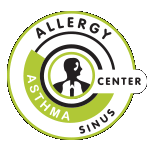ALLERGIES & YOUR NEW HOME
New City, New Home, New Allergies?
Moving to a new city or even just a new home in the same town can introduce you and your family to all sorts of new adventures. New neighbors, new schools, new routes to work, but new allergies?
The answer to that can be tricky, but more than likely, yes! Even if it’s not a new allergen, it might just be that your body has become sensitized to an allergen, like mold or ragweed. We all know moving can be stressful, even if it’s a positive change. That stress can compromise or weaken your immune system, which in turn lowers your resistance. So, if you’d normally be able to ward off an allergic reaction to tree pollen, with the added anxieties of moving, you may find yourself susceptible to a runny nose, itchy eyes, or a nagging cough. If you’re still relatively new to an area (three years or less), you could just now start seeing reactions. Even if you’ve lived in one area your entire life, it’s still feasible to develop adult-onset allergies.
Here are some other reasons you might find yourself “newly” allergic:
- Exposure to new types of trees or grass.
- Exposure to more of a specific tree or grass. You may have moved to a more wooded community, which will have more tree pollen than a downtown cityscape. More pollen, more severe allergic symptoms.
- Pollen may be traveling on the wind from an area nearby. Ragweed, a main fall allergen, has been found more than 400 miles out in the ocean and farther than two miles up in the air. But most of it can found close to its source.
- Your new home or your old items. Your new home may have not been deep cleaned prior to your moving in. Old air filters, pet dander, and dust mites can trigger allergic reactions. And just as your new home may not be perfectly sterile, your old items that you’ve been shuffling around may be stirring up new allergic activity too.
No matter where you live now or may move in the future, allergens of some type are likely to be there. That’s why it’s best to know what may be causing your symptoms. Visiting a board-certified allergist will help. They’ll listen to your symptoms, talk with you about your environment, and discuss options for how you can best find relief. Whether your symptoms are minor and seasonal or more consistent and debilitating, let the allergy experts at The Allergy, Asthma & Sinus Center make any move – or stay – a little easier.

